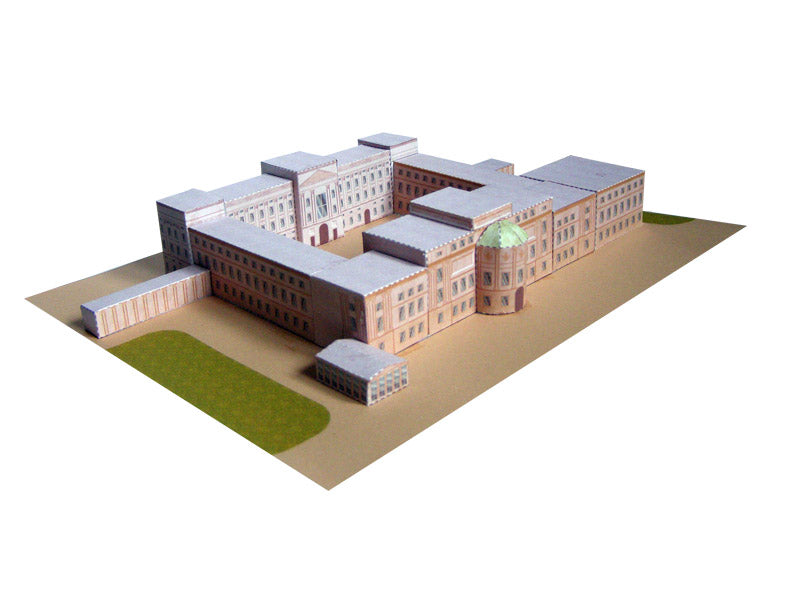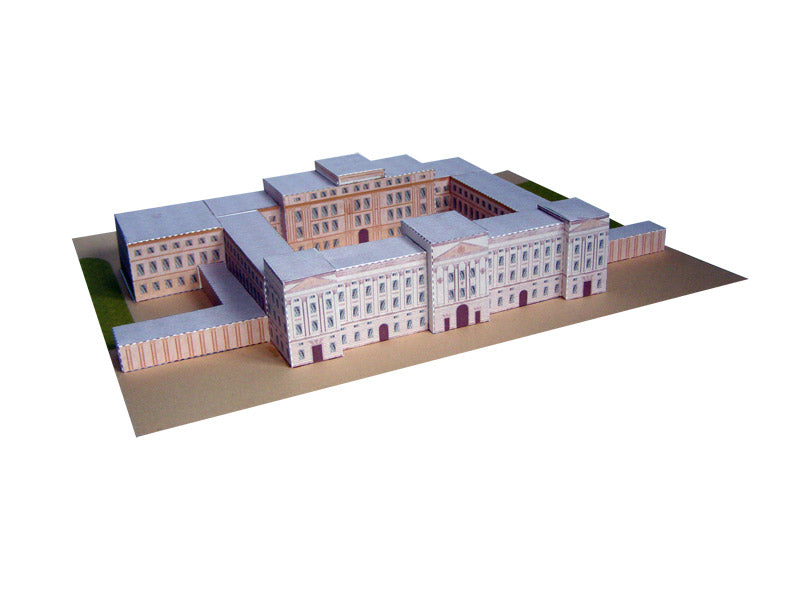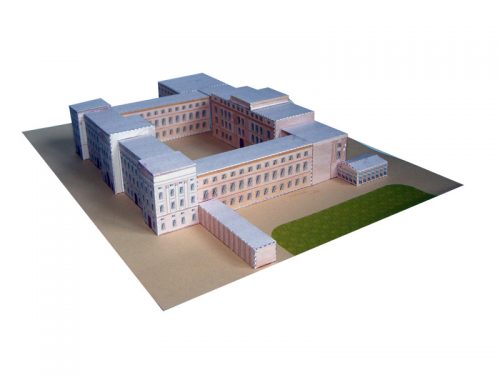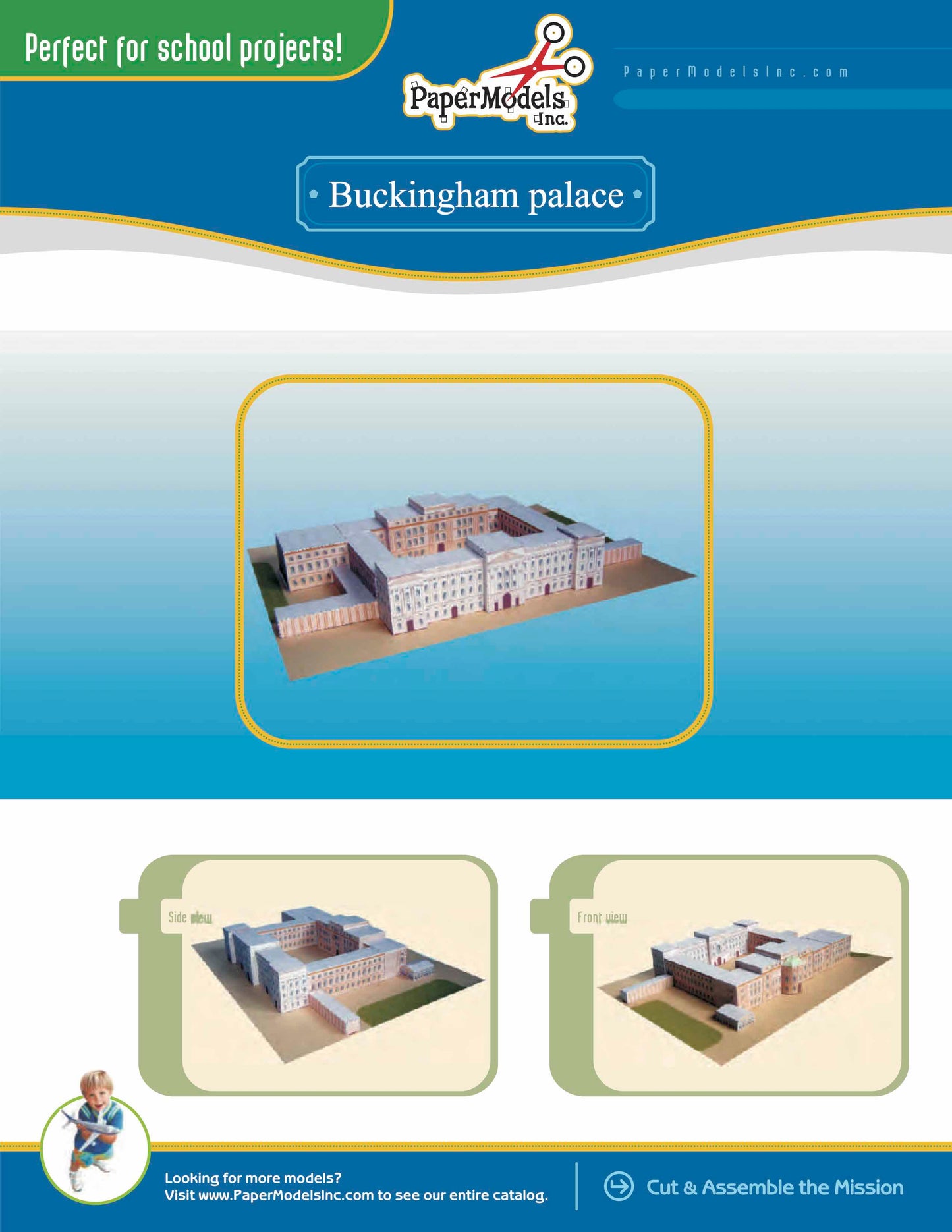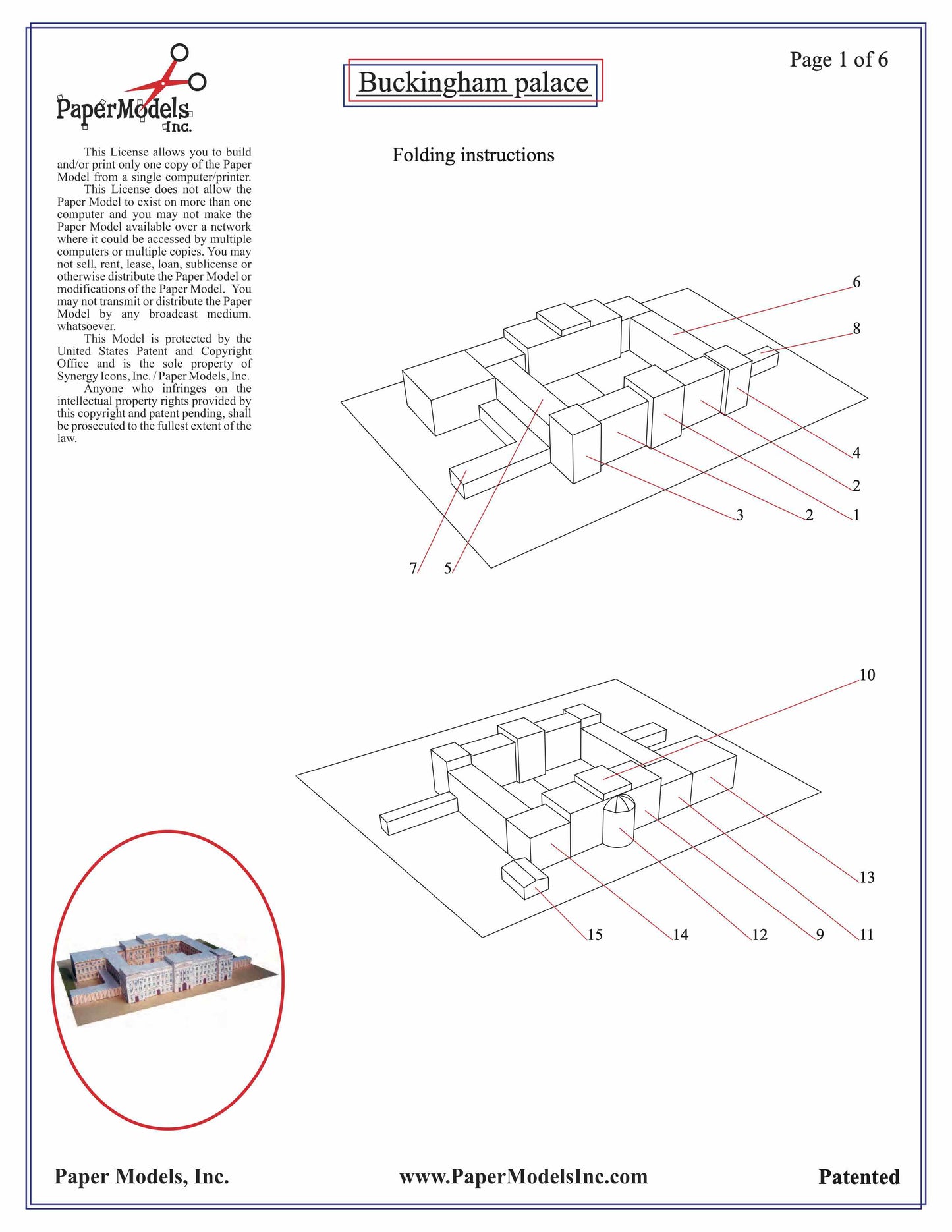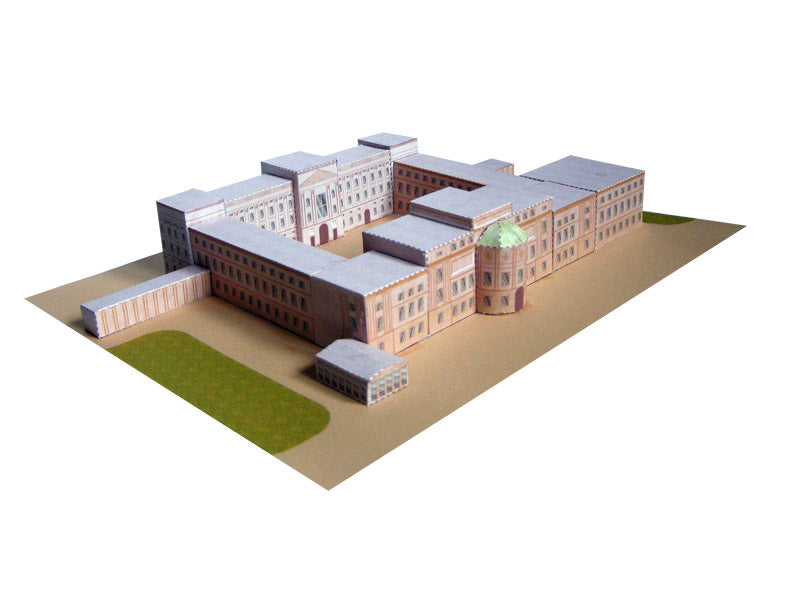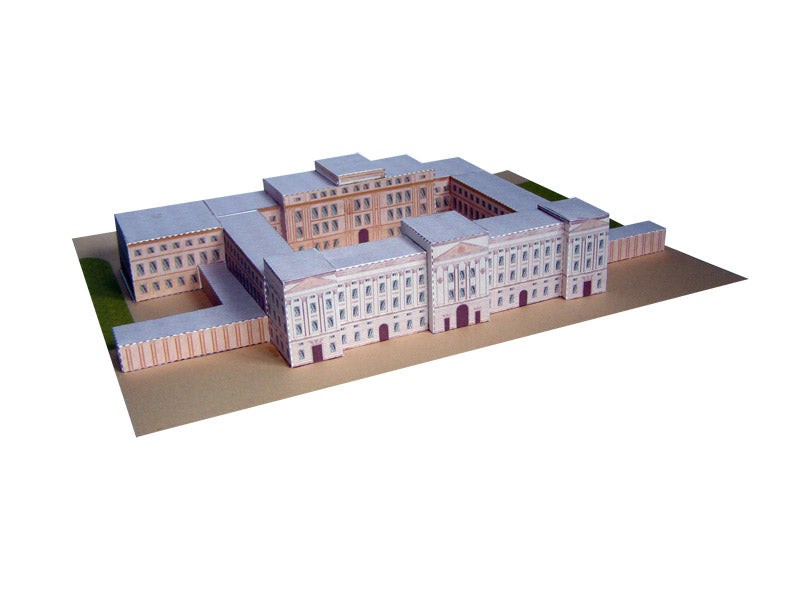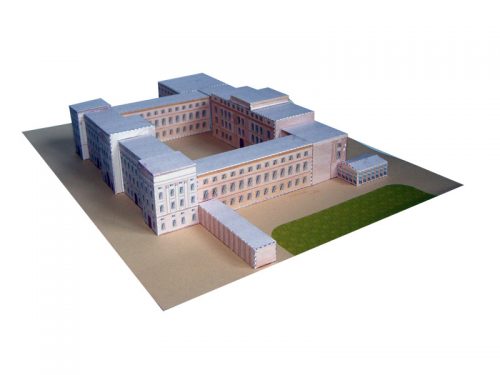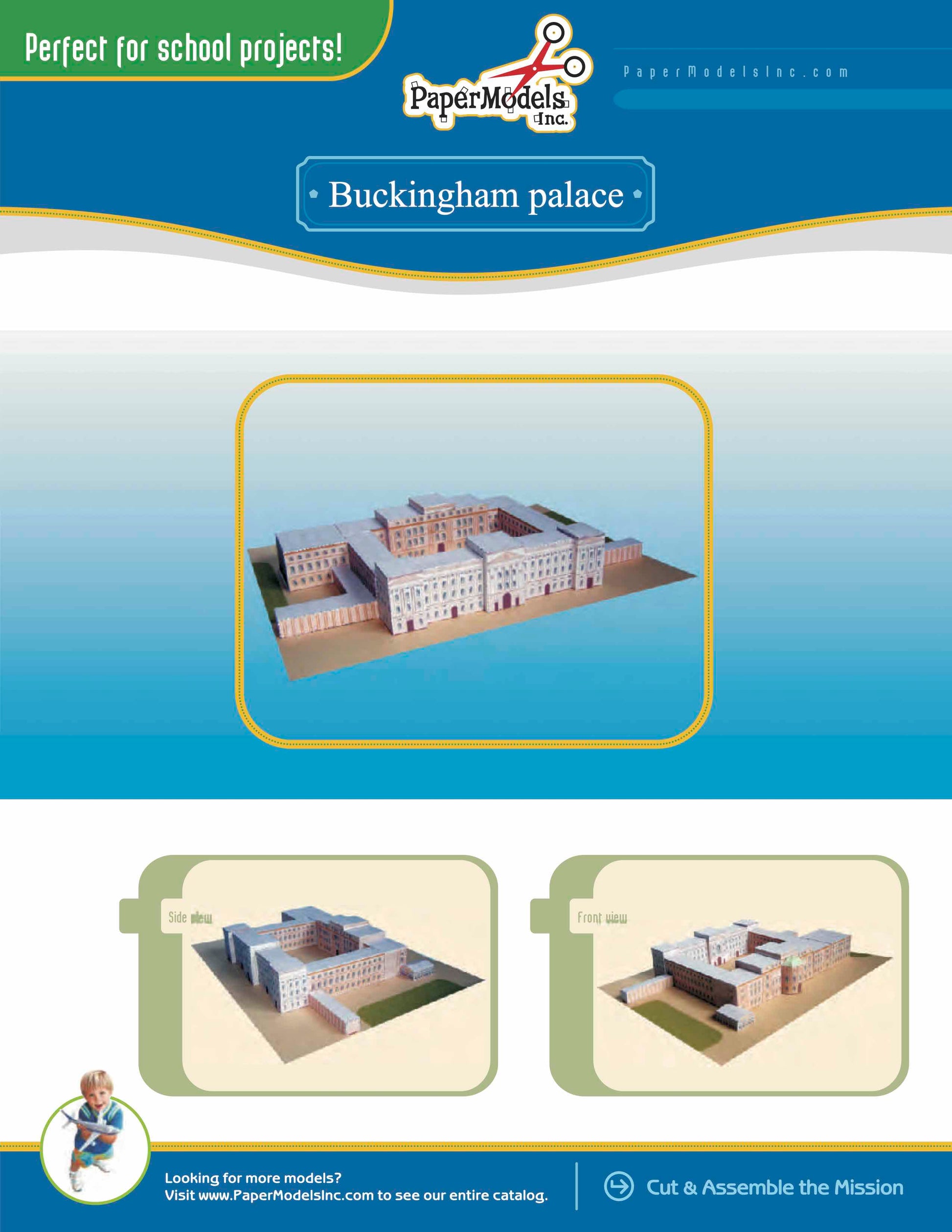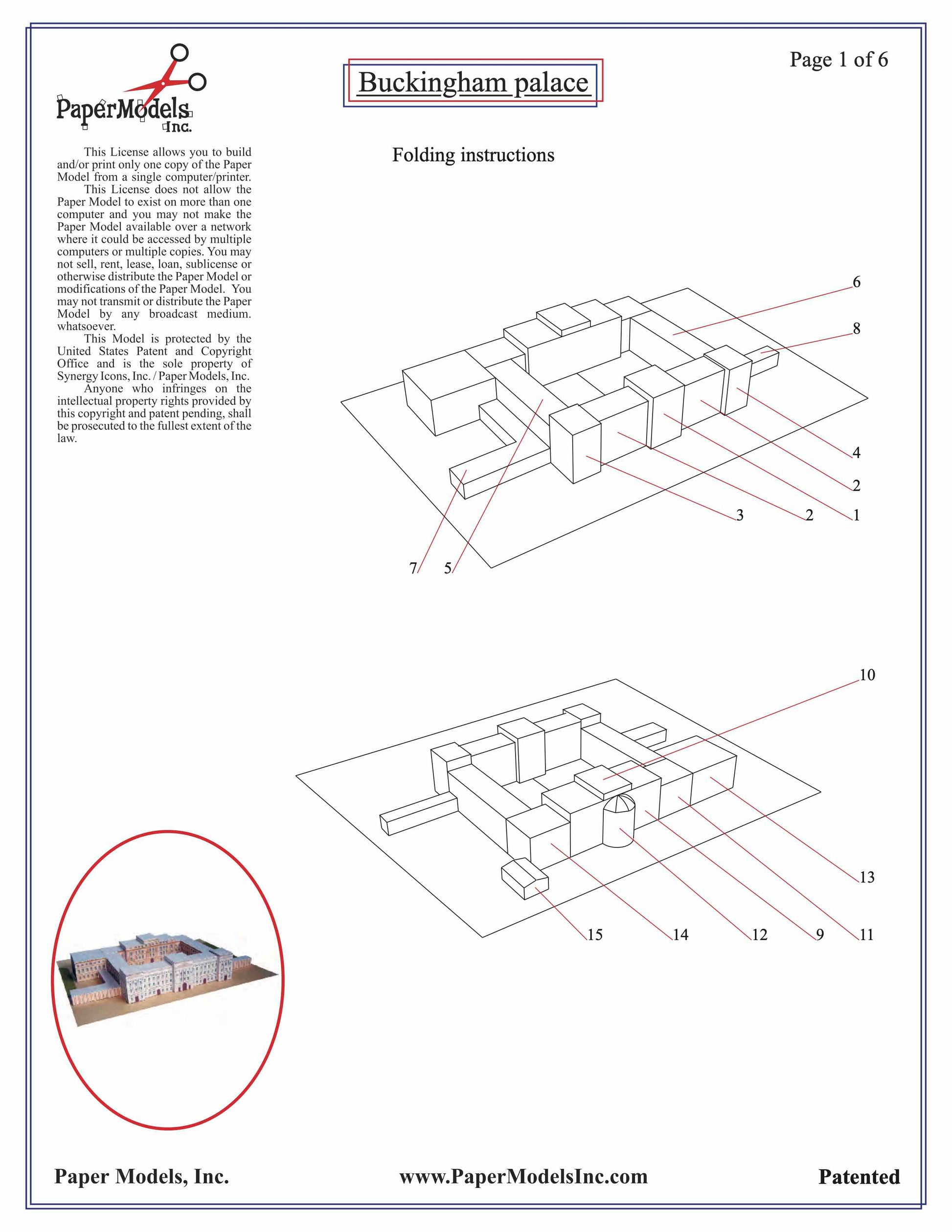Paper Models, Inc.
Buckingham Palace - London - Paper Model Kit
Buckingham Palace - London - Paper Model Kit
- Fast Shipping
- Easy Returns
- 24/7 Support
Couldn't load pickup availability
🌟 Welcome to Paper Models Online – Your Shortcut to Academic Excellence! 🌟
Are you tired of stressing over last-minute school projects? Look no further! Paper Models Online is here to make your academic life a breeze.
🚀 Why Choose Us?
At Paper Models Online, we understand the pressure of looming deadlines and the desire for that coveted "A" grade. That's why we've crafted the perfect solution for you! Whether you're a student aiming for extra credit, a parent looking for quality time with your kids, or just someone in need of a break from the chaos, our paper models are your ticket to success!
💻 Instant PDF Download OR Pre-Printed & Shipped
You're in control! Choose from our instant PDF download, starting at just $9.95 for the 7"x10" size or $11.95 for the 10"x13" size.
Print it on your home or office printer using regular paper, or opt for the hassle-free pre-printed option. We'll ship it directly to your doorstep for a flat $5 fee via USPS First-Class Parcel, ensuring you get it in 1-3 days!
✂️ Easy Assembly, Maximum Impact
With just a pair of scissors, some glue, and an hour of your time, you can turn these paper sheets into stunning three-dimensional architectural replicas or complete science projects. The images on our website are real models made from our kits, and we even provide a history to help you craft an impressive report.
🎨 Unleash Your Creativity
Not into mission kits? No worries! Our models double as templates for your creative genius. Paint, trace, adjust sizes—your imagination is the only limit! Create a custom masterpiece that reflects your unique style and personality.
🛒 The Buying Process Made Simple
- Choose Your Size: 7"x10" or 10"x13"
- Choose Your Delivery: Instant PDF download or pre-printed and shipped
- Purchase Your Model: It's that easy!

📦 Typical Kit Sample
Each kit includes 8 to 18 pages, providing everything you need to bring the model to life. An "exploded view" guides you through assembly, and a complimentary history adds that extra touch for your report. Impress your teacher not just with creativity but also with your research skills!
Don't let deadlines stress you out. Choose Paper Models Online for your next school project, and let us be Your Best Way To Get An "A"! 🌟
 |
 |
 |
| Exploded View | Sample Pieces | Finished Model |
Free History For Your Report
Buckingham Palace
Buckingham Palace, located in London, England, serves as the official residence of the British monarchy, and currently serves as the weekday home and office of Queen Elizabeth II. While the first royal structure was not constructed on the land until 1704, the actual grounds of modern-day Buckingham Palace have a long and interesting history, beginning in the Middle Ages. During this time, the land was adjacent to the Manor of Ebury, but it was passed over the generations to a variety of different owners via either inheritance or land sales. At one point the land was owned by Edward the Confessor, and later by William the Conquerer. During his reign, William gifted the land to the London Tower Constable Geoffrey de Mandeville. Mandeville later gifted the land to the monks who were in charge of the important London church Westminster Abbey.
Beginning in 1531, Henry VIII made it a habit of taking land and structures that he wanted. One of these raids occurred to the property of the Abbey, and Henry VIII seized the land given to them by Mandeville. The land remained virtually unchanged, until it was converted by James I into a garden, but there was little use for much else -- the nearby town of Eye Cross was crumbling, and the entire area became well-known for unsavory activities.
By the late 1600’s, the area had transformed itself once again, and the land (still property of the Crown) was where the Duke of Buckingham and Normanby chose to build his royal residence. It was a simple, three-level establishment, but this house is the structure that to this day still forms the architectural base for the existing Buckingham Palace. The house, nicknamed Buckingham House, remained the property of the Duke’s family, whose descendents sold the estate back to the Crown in 1761. At the time, an official royal family residence was already designated at St. James Palace, and Buckingham House was merely to be used as a vacation residence. Over time, family and ceremonial needs grew, and the house was enlarged, with the entire façade reconstructed as it appears today. This work was chiefly done by both John Nash and Edward Blore, two British architects held in high regard. It was not until 1837, at the request of Queen Victoria, that Buckingham House, now renamed Buckingham Palace, replaced St. James Palace as the official residence of the monarch.
In addition to the working offices of the monarch and various royal residences, Buckingham Palace also serves a high ceremonial role, as many guests are ceremonially received by the Queen here. There is an official route that visitors are escorted through before being presented to the Queen: the route begins in the Guard Room at the top of the Grand Staircase, and visitors are then led down, and through the Picture Gallery, which connects various drawing rooms. The Picture Gallery itself is very ornate, and art from the monarch’s Royal Collection is rotated here on a regular basis. Visitors then pass into the Green Room, which is the anteroom to the Throne Room. Upon being received by the Queen, visitors must then bow and back out of the room, never showing the Queen their back, as that is considered a rude gesture.
Other important rooms of note are the Centre Room -- a Chinese-decorated room behind the glass doors of the Palace’s balcony, and the Music Room. The Music Room is part of the large piano nobile, a series of highly-decorated state rooms that face the western gardens.
Outside, the estate of Buckingham Palace includes London’s largest private park, Buckingham Palace Garden. Complete with a lake, it includes the original silk garden that was on the grounds long before the first residential structure. Of special note is The Mall, a large patch of lawn that serves as the official and ceremonial route to the Palace. The Mall, along with the Victoria Memorial Statue in front of the Palace, was created in 1911 by Sir Aston Webb as a large memorial to Queen Victoria.
The only major terrorist event to ever occur at Buckingham Palace was during World War II. The Palace was targeted by the Nazis, with Nazi commander Adolf Hitler especially intent upon assassinating British commander Winston Churchill, and the current queen, Queen Elizabeth I. Hitler called the Queen “the most dangerous woman in all of Europe,” due to her power to unite a war-torn England. The Palace was bombed a total of seven times by Nazi war planes, often when the King and Queen were in residence. The worst bombing occurred in 1940, and destroyed the Palace chapel, and blew out several windows. Beyond this, a severely destructive bomb never hit the Palace.
Today, a workforce of over 450 people are employed in service to the Palace’s regular residents -- Queen Elizabeth II and Prince Phillip, and part-time residents the Earl and Countess of Wessex and the Duke of York. The Palace and adjacent Gardens are home to year-round parties by the monarch, as well as official and ceremonial business. In the summer months, some rooms of the Palace are open to touring by the public. A major tourist attraction in London is the ceremonial Changing of the Guard in front of the Palace, which occurs once a day during the summer and once every other day during the winter.
Copyright © Paper Models, Inc.
